We believe that website security should be easy, not overwhelming. A WordPress firewall plugin does exactly that because it gives you the freedom to focus on growing your business.
It blocks common website threats before they can affect your website. However, there are different types of firewall solutions, and they do things differently.
Our team has spent a lot of time in the WordPress ecosystem. We understand the importance of getting this choice right.
That’s why we put the top firewall plugins to the test in our 2025 review. We wanted to separate the good from the great.
Let’s walk through the results together. We’ll give you the clear, straightforward insights you need to secure your website.
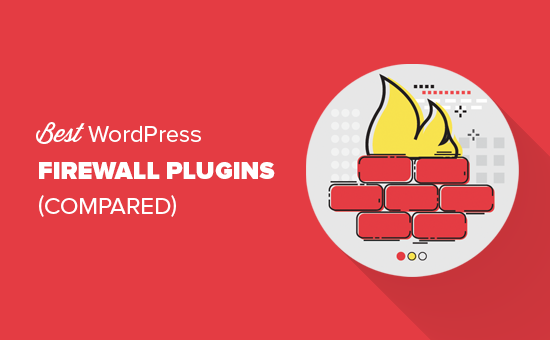
Quick Pick: The Best WordPress Firewall Plugins
Want a fast rundown of the best WordPress firewall plugins? See our comparison table featuring our top 6 recommendations:
| # | Firewall Plugin | Best For | Pricing |
| 🥇 | Cloudflare | Fast performance, global CDN network, and advanced security control | Freemium Paid plans from $20/month |
| 🥈 | Sucuri | Comprehensive security, malware protection, and blacklist removal | Starts from $199.99/year |
| 🥉 | MalCare | Easy-to-install tool with endpoint security and bot protection | Freemium Paid plans from $99/year |
| 4 | Wordfence Security | Application-level security and on-demand malware scans | Freemium Paid plans from $119/year. |
| 5 | Jetpack | A suite of features, including basic security options | Freemium Security plans from $4.95/month |
| 6 | BulletProof Security | A basic firewall tool without high costs | Freemium One-time fee of $69.95 |
What Is a WordPress Firewall Plugin?
A WordPress firewall plugin acts like a guard for your website. It’s also called a web application firewall (WAF).
This guard stands between your website and all the visitors trying to reach it. In short, firewalls watch your website traffic closely and stop many common threats before they can harm your WordPress site.
Besides making your site more secure, firewalls also often make your website faster and perform better.
There are two main types of WordPress firewall plugins:
1. DNS-Level Website Firewall
These firewalls send all your website traffic through their own cloud servers. This helps them filter out bad traffic, so only good, safe visitors get sent to your actual website server.
2. Application-Level Firewall
These plugins check the traffic after it arrives at your server. They look at it before your WordPress site fully loads. This method is not as good at lowering the load on your server as a DNS-level firewall.
In our experience, DNS-level firewalls work better in two important ways:
- They quickly spot new threats by watching many websites, checking for patterns, looking for known bad IP addresses, and blocking traffic to unusual pages.
- DNS-level website firewalls greatly reduce the work your WordPress hosting server has to do. This helps make sure your website stays online and doesn’t crash.
How We Test and Review WordPress Firewall Plugins
When we check WordPress firewall plugins, we look at several important things. This helps us find tools that balance being safe, easy to use, and fast.
First, it’s very important that the firewall is easy to set up. We check if a plugin needs tricky DNS changes or if you can just click a few buttons to get it working.
Here are the other main things we check:
- Type of Firewall (DNS-Level vs. Application-Level): We see if the firewall stops bad traffic before it even gets to your server (DNS-level) or handles threats after they reach your server (application-level).
- Protection Against Threats: We look at how well the plugin stops different attacks. These include DDoS, brute force, SQL injections, XSS, and malware.
- Performance Impact: We watch to see if the firewall helps your server load less and makes your website faster through caching or CDN use.
- Additional Features: We search for helpful extras like malware scanning, checking for file changes, removing blacklists, and stopping bad bots.
- Pricing and Value: We compare the plugin’s cost to what it offers. We think about free versions versus paid plans and if they offer good value.
Why Trust WPBeginner?
At WPBeginner, we don’t just review plugins. We test them thoroughly based on real use.
Our team’s extensive experience with WordPress security ensures practical, unbiased insights. We provide balanced evaluations highlighting both pros and cons so you can confidently choose the best plugin for your needs.
To learn more, you can check out our complete editorial process.
With that in mind, let’s examine the best WordPress firewall plugins for protecting your website.
1. Cloudflare

Cloudflare is a quick, dependable, worldwide security tool. It helps protect your website, makes it faster, and gives you good control over its security and DNS settings.
At WPBeginner, we use Cloudflare’s Enterprise plan. Before this, we used Sucuri, and you can read our case study about why we switched from Sucuri to Cloudflare. We found that Cloudflare’s better firewall rules let us handle attacks with more precision.
With a huge CDN network spanning over 320 cities, Cloudflare ensures faster load times worldwide. Its free CDN services also come with protection against DDoS attacks.
Cloudflare works as a DNS-level firewall. This means all your website traffic goes through their network first. This makes your website perform better and helps it stay online even if there’s a lot of unusual traffic.
A small drawback is that free plans don’t include blacklist removal or security alerts. Also, Cloudflare doesn’t watch your WordPress site for file changes. But you can fix this by using a WordPress security scanner plugin.
Pros:
- Fast, globally distributed network for improved performance
- Extensive CDN network across over 320 cities
- Free CDN and DDoS protection
- Detailed control over firewall rules on paid plans
- DNS-level firewall for better traffic management
- In-depth DNS analytics and API access
Cons:
- Lacks blacklist removal and security notifications in lower plans
- Does not monitor WordPress for file changes on its own
Pricing: Cloudflare offers a free plan with basic protection and unmetered DDoS protection. Paid plans, like the Pro plan at $20/month, add an advanced Web Application Firewall (WAF) for more sophisticated threats. For advanced rules and even better performance, the Business plan starts at $200/month.
Why we chose Cloudflare: We highly recommend Cloudflare for its fast performance, global CDN network, and advanced security control. While it lacks some features, you can easily complement it with a WordPress security plugin. This makes Cloudflare a strong choice for both speed and protection.
Grade: A+
Related: Curious how Cloudflare measures up against Sucuri? See our comparison article on Sucuri vs CloudFlare (Pros and Cons) – Which One is Better?
2. Sucuri
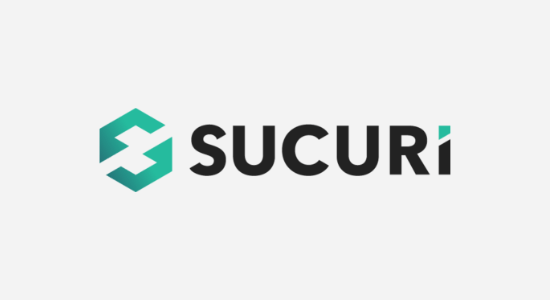
Sucuri is a top website security company for WordPress. Many site owners trust it to keep their sites safe. It offers a DNS-level firewall, stops intruders and brute force attacks, and even helps remove malware and blacklists.
At WPBeginner, we used Sucuri before switching to Cloudflare. It did a great job stopping threats. For example, over three months, Sucuri helped us prevent over 450,000 attacks. You can find more details in our full Sucuri review.
One of Sucuri’s best features is that it sends all your website traffic through its CloudProxy servers. It carefully checks each request to make sure only real, safe traffic reaches your site and stops bad attempts.
From our experience, this protection greatly lowers the amount of suspicious activity aimed at your site. We also found that Sucuri makes websites faster with caching, website acceleration, and its Anycast CDN.
Pros:
- Complete security with firewall, malware cleanup, and blacklist removal
- Traffic filtering through CloudProxy servers
- Performance optimization and CDN included
- Broad protection against known attacks
Cons:
- Higher cost compared to some other options
- Setup requires changing the domain DNS records, which can be an intimidating step for beginners
Pricing: Starts from $199.99/year for the basic plan, billed annually.
Why we chose Sucuri: We recommend Sucuri because of its strong security features and proven ability to protect WordPress sites. At WPBeginner, we saw firsthand how Sucuri’s DNS-level firewall blocked hundreds of thousands of attacks. With all-around protection, we found Sucuri to be a reliable choice for keeping WordPress sites safe.
Grade: A+
3. MalCare
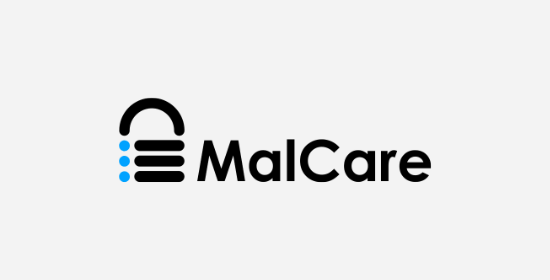
MalCare is a WordPress security plugin that’s really easy to install. It gives you strong security and keeps bad bots away. Unlike many free firewalls, it lets you scan for malware whenever you want.
We like that MalCare is a plugin-based firewall. This means it’s super simple to put on your site with just a few clicks. It’s a solid choice for keeping WordPress blogs and websites safe.
A great feature is its endpoint security, which blocks threats on your server before they can run on your WordPress site. We also like that MalCare has excellent bot protection. It stops brute force bots, scraper bots, and other bad bots from attacking your site.
Pros:
- Real-time application-level firewall
- Easy to install, no DNS configuration required
- Blocks threats on the server before they reach WordPress
- Strong bot protection
- On-demand malware scans for added security
Cons:
- Its free plan has limited features
Pricing: Starts from $99/year, billed annually. There’s also a free plan that includes basic features.
Why we chose MalCare: We recommend MalCare due to its powerful firewall and real-time protection. We also appreciate its easy installation process. Overall, MalCare offers great security for WordPress sites, making it a reliable choice.
Grade: A
4. Wordfence Security
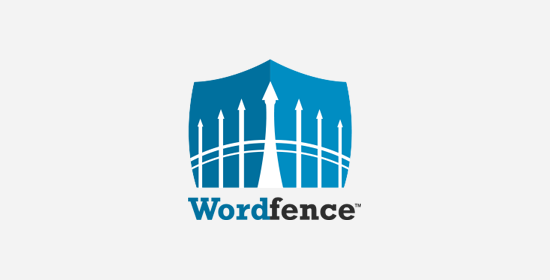
Wordfence is a popular and free WordPress security plugin with a built-in firewall. It watches your WordPress site for malware, file changes, and SQL injections. It also protects your website from DDoS and brute-force attacks.
First, know that Wordfence is an ‘application-level’ firewall. This means the firewall works on your server, blocking bad traffic after it reaches your server but before your website fully loads. You can learn more in our guide on how to install and set up Wordfence.
From our experience, while it does block bad traffic, a lot of attacks could still slow down your server. Also, because it’s an application-level firewall, Wordfence doesn’t come with a content delivery network (CDN).
Even so, Wordfence offers security scans you can run whenever you want. It also lets you watch traffic and block suspicious IP addresses right from your WordPress admin area. We liked the control this gave us.
Pros:
- Built-in website application firewall
- Comprehensive malware, file change, and SQL injection monitoring
- Protection against DDoS and brute-force attacks
- On-demand and scheduled security scans
- Easy to set up because it’s plugin-based
Cons:
- An application-level firewall can be less efficient under heavy attack
- Lacks a content delivery network (CDN)
Pricing: The basic version of Wordfence is free. To access the premium firewall rules and features, you’ll need the premium version, which starts at $119/year for a single-site license.
Why we chose Wordfence: Wordfence stands out for its comprehensive security features, including a built-in application firewall. While it may not have a CDN, its wide range of features makes it a reliable choice for WordPress website protection.
Grade: B+
Related: Want to know how Wordfence stacks up against Sucuri? Then, you might want to check out our comparison article on Wordfence vs Sucuri – Which One is Better?
5. Jetpack
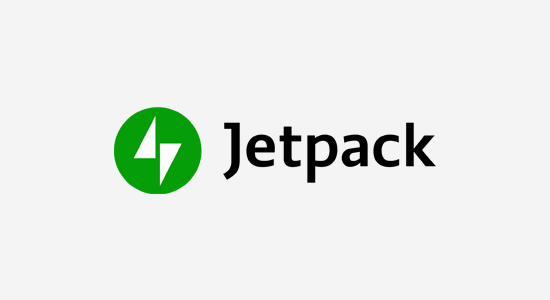
Jetpack is a well-known WordPress plugin that comes with many features, like WordPress security and backups. Like Wordfence, Jetpack is an application-level firewall. This means bad traffic is stopped after it gets to your WordPress hosting server.
Jetpack’s free plan offers basic brute force protection and checks if your site is down. This can be helpful for smaller sites. However, we found it pretty limited if you need more complete protection. Feel free to read our full Jetpack review.
When we tested it, we saw that many users might need to upgrade. To get automatic malware scanning and security fixes, you’ll need to opt for the Jetpack Security or Complete plan.
Since Jetpack has so many features, its price is quite fair. But from our experience, if you’re mainly looking for a dedicated security firewall, you might be happier with a specialized choice like Sucuri or Cloudflare.
Pros:
- Offers many features beyond security (e.g., performance, backups)
- Basic brute force protection and downtime monitoring
- Affordable pricing for an all-in-one plugin
Cons:
- The free plan is very limited in security features
- Not as specialized in security compared to dedicated solutions
Pricing: The basic plugin is free. The premium security bundle starts at $4.95/month.
Why we chose Jetpack: We recommend Jetpack if you’re looking for an all-in-one solution with basic security features. It’s affordable and a good entry-level choice for small websites that also need performance and site management tools.
Grade: B
6. BulletProof Security

BulletProof Security is another free security plugin. It’s made for users who need simple firewall protection. It has a built-in application-level firewall, login security, database backup, and a maintenance mode.
Our general feeling was that BulletProof Security isn’t super easy to use. Because of this, new users might find it hard to figure out what to do.
The free version does include a basic malware scanner, though it’s not as powerful as those in other plugins. However, it does have a setup wizard that automatically updates your WordPress .htaccess files and turns on firewall protection.
Pros:
- Basic firewall protection
- Login security, database backup, and maintenance mode
- Setup wizard for easy firewall configuration
- The paid version offers more advanced scanning features
Cons:
- The user interface can be challenging for beginners
- Free version’s malware scanner is very basic
Pricing: Free basic plugin. The pro version costs a one-time fee of $69.95 for unlimited sites and lifetime support.
Why we chose BulletProof Security: For users seeking straightforward, basic firewall protection with added benefits like login security and database backup, BulletProof Security can be a good option.
Grade: C
What Is the Best WordPress Firewall Plugin?
After carefully comparing all these popular WordPress firewall plugins, we believe that Cloudflare is the best firewall protection you can get for your WordPress site.
It offers an excellent combination of global CDN coverage, strong DDoS protection on all plans, and advanced firewall rules on paid plans. Overall, it’s a solid choice for both performance and protection.
However, Sucuri is a strong contender. It is a fantastic DNS-level firewall with complete security features to give you peace of mind. The performance boost you get from their CDN is also quite impressive.
Ultimately, the best option for you depends on your specific needs and budget.
WordPress Firewall Plugin FAQs
Picking the right WordPress firewall plugin can feel like a lot. So, here are answers to some common questions to help you out:
Do WordPress website security plugins work?
Yes! Many WordPress security plugins do a great job. They stop bad traffic, prevent attacks, and keep your website safe. They add an extra layer of safety, especially when you use them with other good security habits.
Are WordPress plugins enough to secure my website?
WordPress plugins greatly improve your site’s safety, but they are just one part of a bigger plan. You also need strong passwords, regular updates, and backups for full protection.
How do WordPress security plugins work?
WordPress security plugins watch your site, look for malware, and stop strange behavior. Their firewalls block harmful traffic before it can hurt your site. Features like login security also protect against brute force attacks.
Are paid WordPress security plugins better than free?
Paid plugins often offer more advanced features. This includes watching your site in real-time, automatically removing malware, and getting special help. Free plugins give you basic protection, but paid ones usually offer more security and extra services.
How many WordPress security plugins do I need?
Usually, one reliable security plugin like Cloudflare or Sucuri is enough. Using too many security plugins can cause issues and slow down your site. Just pick one that covers key tasks like a firewall and malware scanning.
Additional Resources for WordPress Security 📖
We hope this article helped you find the best WordPress firewall plugin for your website. You may also want to check out these other helpful guides:
- The Ultimate WordPress Security Guide – Step by Step
- Best WordPress Activity Log and Tracking Plugins (Compared)
- How to Add Two-Factor Authentication in WordPress (Free Method)
- Ecommerce Security Tips: How to Secure Your WordPress Store
If you liked this article, then please subscribe to our YouTube Channel for WordPress video tutorials. You can also find us on Twitter and Facebook.





Jiří Vaněk
At first, I used WordFence, but as you mentioned, it was a burden on the server. Since it was a shared server, I was concerned that with higher traffic or an attack, I would have issues with my web hosting provider. That’s why I eventually switched to Cloudflare, where I use their CDN, SSL certificate, and also DDOS protection. Since then, the traffic on the website has stabilized, even though, according to CF reports, attacks on the server occasionally occur. Additionally, their CDN is incredibly fast.
Mrteesurez
Most of us in the start used to use Jetpack because they used to recommend it, even till now some of my websites are still using it. I have decided to use Cloudflare based on your recommendation in some of your post as you have switched to Cloudflare. Thanks.
Jiří Vaněk
CloudFlare is great and offers many other features that I also found absolutely amazing. Besides DDoS protection, it’s very convenient to connect CloudFlare to the WP Rocket cache plugin, which is an incredibly powerful combination. What I also like is the protection against hotlinking (though it doesn’t support WebP images, which is a bit disappointing for me). When I see the monthly reports from CloudFlare that are sent to my email, I’m also thrilled that I switched and started using this service. I’m using the free plan and yet it still offers a really large number of features.
Mrteesurez
I am very much grateful for your support and really appreciate your contribution. I only know about Jetpack and have been using it from the start. I am happy to hear all great things and features you have experienced with Cloudflare. I have decided to switch to it.
Rafael Ninvalle
Hey guys. Amazing article. I’m facing some security issues right now on my site and this has helped me understand some of the differences among the offerings.
Just a quick typo….one of your paragraphs says:
“Because it’s an application level firewall, WordPress does not come with a content delivery network (CDN).”
Should that say “WordFence” instead of “WordPress”?
Hope I was helpful!
Chao!
Rafa
WPBeginner Support
Thank you, the typo should now be fixed
Admin
Muhammad Ikram
Please explain what is meant by bad traffic ? Thanks
WPBeginner Support
Traffic from spam bots and not actual users is the most common bad traffic for what we mean
Admin
Christina
As you said on the first comment Wordfence provide free firewall but when I check my site on sucuri site checker then it shows firewall is not activated.
Is there any other free firewall plugin?
Tim
The sucuri site checker does NOT check for the Wordfence firewall (it checks for the sucuri solution), so that is exactly what to expect.
Christian
Pls we need help concerning free firewall plugins. Not all website owners can afford these plugins
WPBeginner Support
Hi Christian,
Wordfence is available as a free plugin, as well. The paid version gives you extra features and support.
Admin
Liam
Great article, but I could I ask you to do this again from a global perspective. What you have written I can see for example is US or Europe focused.
Let me explain our issue, we are with Sucuri, which they are great but, as an Australian company the nearest Sucuri WAF is Japan or West Coast US. So that means all traffic has to go from Australia (where most our visitors are) to Japan or the US then back to Australia and we are averaging 1.5 second times for this.
Your blog post didnt take into account anywhere the server locations of any of the services. Do you think you could redo factoring in the WAF locations?
WPBeginner Support
Hey Liam,
You are right, the location of the data center can affect performance. You can look into Cloudflare, they do have data centers in Australia.
Admin
bjoern
Hello, what about using, for example, Sucuri and Wordfence together?
Does this make problems? Should there always be just one of those in use?
Thank you
Carsten Dohmann
I always use iThemes Security or Wordfence in combination with htaccess.
Do you know Ninja Firewall?
It sounds to me like sucuri “Full standalone web application firewall. Works before WordPress is loaded.”
Does anyone tested it?
Jason Egan
I have used Itheme security pro for years and love it! Recently we have added sucuri to some of our sites as well and it’s fantastic!
Fritz
Yes, I have to agree with Jason, I am also using Itheme security and it is also, in my opinion very good.
Tyrone
Hi,
Hopefully you can assist me. I downloaded Image Mapper in hope to be able to map a graphic in Wordpress. Sadly to say after mapping our the image with 8 links, it didn’t work. So, i asking if there is a good mapping program which will work well with Wordpress.
Sincerely,
Tyrone
D Gariepy
I currently use Cloudflare Pro and Wordfence Pro in combination and have great success keeping my sites safe. I have used SiteLock in the past (in fact have 3 sites under contract for another month). SiteLock’s customer service wasn’t great at all. One sales rep kept trying to upsell me on the firewall because of our SSL but never sent cost proposals after many requests. Nor did he explain why the firewall needed to be updated after selling us the first one. The firewall seems ok, but not without minor flaws. I also didn’t notice any speed increase at all with SiteLock.
Lou
I have had the same problems with SiteLock in the upselling each time I had to contact them. SiteLock did not run well with my server. It has been a headache. I also had to pay for SSL Comondo separate. I will now try Scuri for $300 a year. YIKES! Hope it works for me.
Gene
How about including and comparing few free WP firewall plugins? Many small bloggers don’t have the budget to pay monthly or annually for this software. Also there are many free options that do an excellent job protecting WP sites.
Filip
Is it ok to have 2 instead of one? What about Jackpack and Wordfence (free edition). i have them both together on my blog, is that ok?
WPBeginner Support
Hi Flip,
You can use both, however you need to monitor how keeping them both activated on your site affects your page speed.
Admin